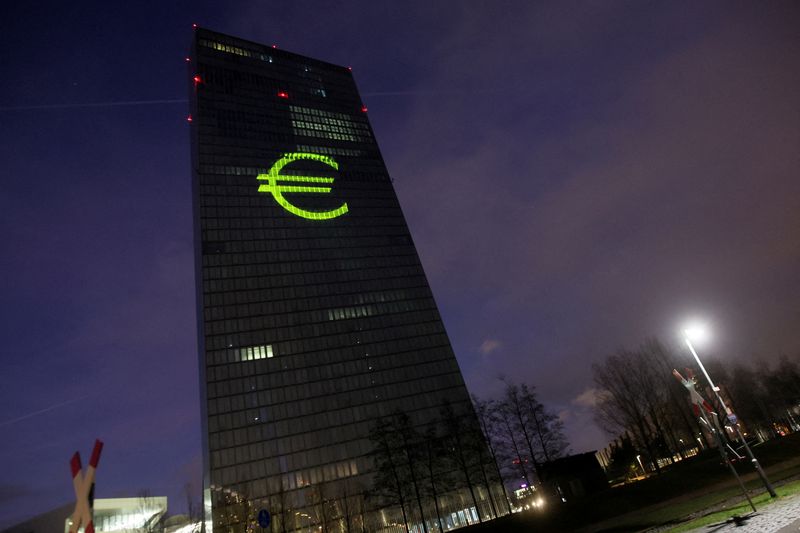Euro Rises Back Above $1 on Report of ECB Possibly Hiking by 75 BPs

© Reuters
By Geoffrey Smith
Investing.com — The rose back above $1 in morning trade in New York on Friday, after Reuters reported that the European Central Bank may discuss raising its key rates by as much as 75 basis points at their next meeting in September.
The ECB had guided at the time of its last meeting only that another increase was likely to be warranted, but subsequent comments by ECB governing council members had indicated that the choice would be essentially between hikes of 25 or 50 basis points. The ECB had raised its deposit rate to 0% in July, ending eight years of negative interest rates.
“Inflation is more and more broad and second round effects are clear,” Reuters quoted a person close to the governing council as saying. “The outlook is much worse than we projected in June so I agree that 75 should at least be discussed.”
By 10:00 ET, the euro was at $1.0032, lifted also by tentative signs of a weakening inflation dynamic in the U.S., where a key gauge of consumer prices – the price index for – fell 0.1% in July, bringing the of inflation down from 6.8% to 6.3%. The numbers nudged market sentiment in the direction of expecting a slight relaxation in the pace of by the Federal Reserve.
Frederik Ducrozet, an analyst with Pictet Asset Management, described the story as a “trial balloon” launched by the bank’s hawks. The accounts of the ECB’s last meeting, published on Thursday, suggested that many were unhappy with what has so far been a slow response by the Frankfurt-based central bank to the episode in 40 years.
Even so, Ducrozet noted that a 75 basis point hike is unlikely.
“Recession risks are rising by the day,” he noted via Twitter, adding that “wage growth remains subdued.”
The report also had a big impact on European government bond markets. The yield on the benchmark bond rose by 10 basis points to hit a two-month high of 1.43% before retreating slightly. The effect on financially weaker Eurozone members was even bigger: Italy’s yield rose by 19 basis points to 3.75, a one-month high. The yields on and benchmarks rose by some 10-11 basis points.
Changes in ECB rates tend to have a bigger impact on the so-called peripheral states of the Eurozone, which have historically had larger debt burdens and have consequently been more sensitive to changes in financing conditions.
The ECB said in July it will press ahead with a new tool to stop what it sees as unwarranted volatility in bond markets. Until that tool is operational, it is using the leeway allowed by its old quantitative easing program to stop yield spreads from widening too much. As such, when it reinvests the proceeds of maturing bonds in its portfolio, it is reallocating funds away from ‘core’ markets such as Germany and the Netherlands to markets such as Italy’s.
Read More: Euro Rises Back Above $1 on Report of ECB Possibly Hiking by 75 BPs
